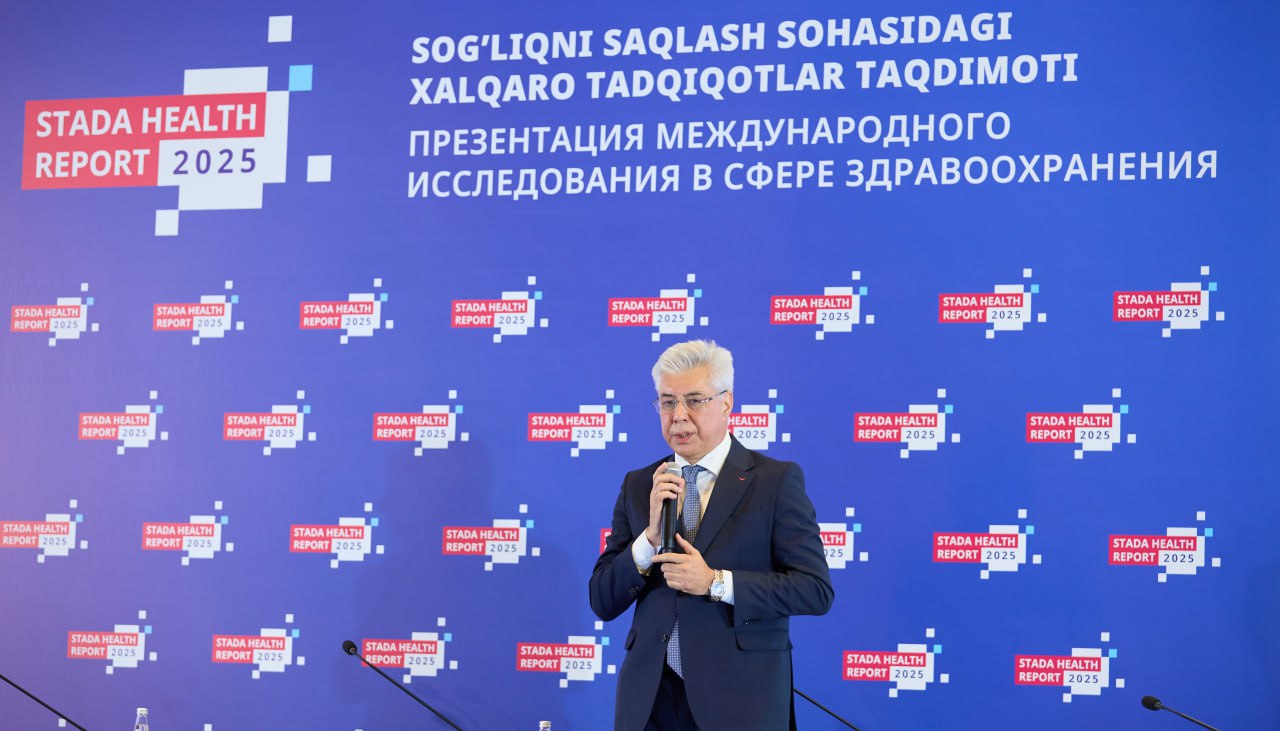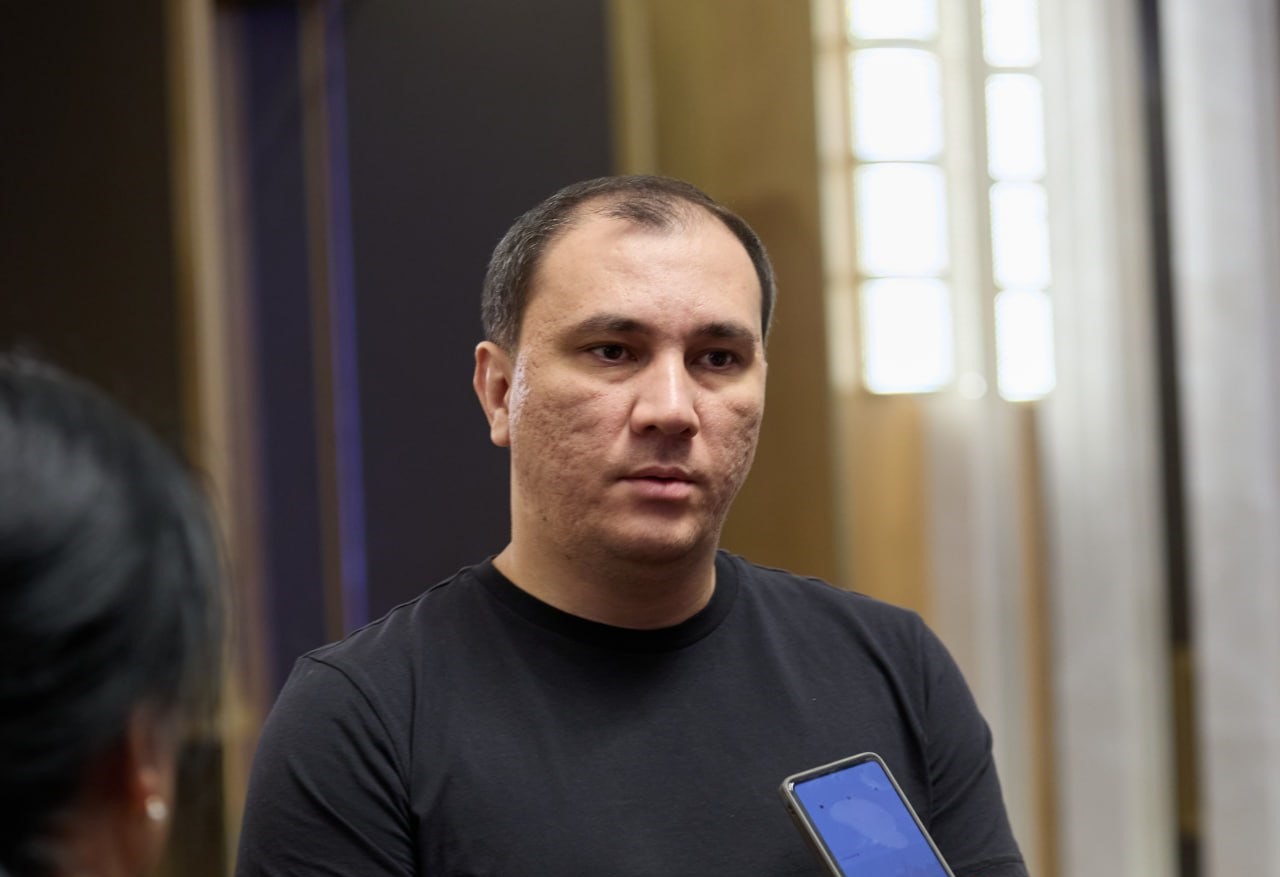02.07.2025
220
Analytical Report on the Presentation of the STADA Health Report 2025 and the Participation of the Republican Center for the Study of Public Opinion “Ijtimoiy Fikr”
On June 26, 2025, the official presentation of the international STADA Health Report 2025 was held at the Hyatt Regency Hotel in Tashkent. The event featured extensive discussions on the most pressing issues of the global healthcare system — physical and mental health, medical prevention, the level of trust in the sector, and the role of state and private institutions.
At the presentation, the results of the latest survey conducted in 22 countries were announced. The STADA Health Report is one of the largest and most independent international socio-scientific studies, initiated by the reputable pharmaceutical company STADA Arzneimittel AG. This year marks the third time Uzbekistan has participated in the project. In Uzbekistan, the surveys were conducted between February and March among 1,000 citizens. The results covered key indicators such as the population’s attitude towards a healthy lifestyle, levels of stress and mental health, trust in doctors, and access to medical services.
The event was attended by Mansur Sherikbaevich Seitov, PhD, Deputy Director for Scientific Research and Innovation of the Republican Center for the Study of Public Opinion “Ijtimoiy Fikr”, who participated as an expert. In his speech, he focused on the formation of a culture of health in society, trends in public consciousness, and the importance of public opinion in shaping state policy. He also shared the results of the Center’s social research on public health issues among the population of Uzbekistan.
As part of the event, data on the situation in Uzbekistan based on the results of the STADA Health Report 2025 were presented. According to the study, 60% of Uzbeks rate their psycho-emotional state as good or very good. This figure is close to the global average (64%) but significantly higher than in Hungary (44%) or Sweden (51%), for example. At the same time, whereas in 2024 the positive assessment of mental health in Uzbekistan was 73%, in 2025 this indicator decreased by 13 percentage points. This indicates increasing stress factors and the need to strengthen measures to support the psycho-emotional well-being of the population.
34% of respondents in Uzbekistan reported that they have likely experienced or are on the verge of emotional burnout. This figure is significantly lower than the global level (63%). Meanwhile, 35% of survey participants stated that they had not encountered signs of burnout. Therefore, the problem of emotional exhaustion remains relevant for Uzbekistan as well.
Although 96% of respondents consider a healthy lifestyle important, only 51% actually adhere to it in practice. One of the main reasons is the trust factor: people tend to rely on those close to them. When it comes to health, the main sources of support and motivation are family members (58%) and spouses (57%). Among specialists, the greatest influence is attributed to general practitioners (56%), followed by pharmacists (30%).
According to Bakhtiyar Khadzhimukhamedov, General Director of STADA in Uzbekistan, Head of the Uzbekistan and Kyrgyzstan Cluster, among the participating countries Uzbekistan stands out for its high level of positive assessments of the national healthcare system. 67% of Uzbeks expressed satisfaction with the work of the healthcare system. This is significantly higher than the average level among all participating countries (58%) and noticeably exceeds the figures for neighboring Kazakhstan (36%) and Hungary (23%).
“While in many Eastern European countries skepticism prevails, the level of satisfaction with the healthcare system in Uzbekistan exceeds 60% — this is one of the highest rates among the participating countries. This shows that citizens’ trust in the healthcare system is being maintained and that positive systemic changes continue in the sector. Despite certain problems, the perception of the quality and reliability of medical care among Uzbeks remains stable and positive. For our region, this is a very good sign, because as part of the global STADA team, we see our main task as supporting people’s health as a reliable partner. The data from this study help us better understand what prevents people from leading a healthy lifestyle in the countries where we operate and to work on eliminating these barriers,” emphasized Bakhtiyor Khojimukhamedov.
The importance of this study for Uzbekistan lies in the fact that it provides state policymakers and healthcare leaders with real, scientifically grounded data on the needs and expectations of citizens in the field of health. An important conclusion of the study is that despite understanding the importance of a healthy lifestyle, the population faces economic, psychological, and social barriers to putting it into practice.
As Mansur Sherikbaevich noted in his analysis, it is extremely important today to build work in the healthcare sector taking into account public opinion, to study the psycho-emotional state of the population, and to carry out systemic reforms based on these findings. International studies such as the STADA Health Report serve as an important scientific and practical basis in this regard.
This event became not just a presentation of the report, but also a significant platform for open dialogue and exchange of views between society, the state, and the professional community. Undoubtedly, such studies will help strengthen the foundation of a healthy society in the future.





